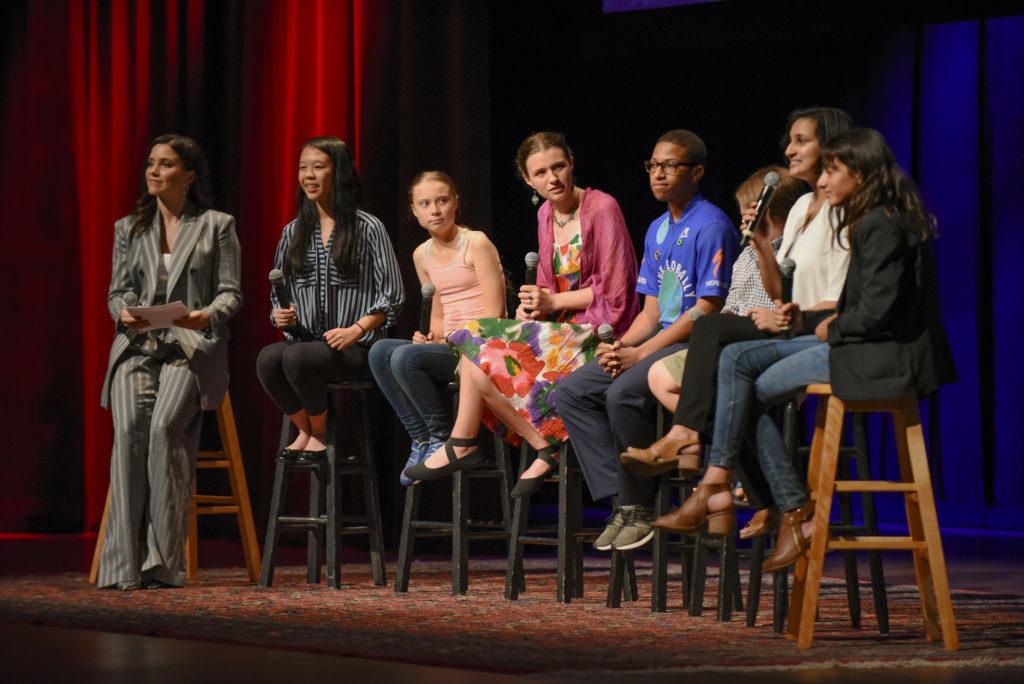Youth environmental activists discussed issues at the intersection of climate change and human rights at Lisner Auditorium Monday.
Human rights organization Amnesty International presented the 2019 Ambassador of Conscience Award to 16-year-old climate activist Greta Thunberg and other members of the Fridays for Future movement, a student effort aimed at pushing politicians to take action to protect the environment from climate change. Thunberg and the young activists spoke about the need to reverse the effects of climate change and protect current and future generations.
In case you missed it, here are some highlights from the event:
Fridays for Future
Thunberg said worldwide political inaction on climate change requires people to become activists and urge governments to take decisive action on the issue.
“The changes and the politics required to take on this crisis simply doesn’t exist today,” Thunberg said. “That’s why every single one of us must push from every possible angle to hold those responsible accountable and to make people in power act and take the measures required.”
Thunberg said the fight to counteract climate change includes the protection of indigenous communities and other populations vulnerable to the effects of a warming Earth and more extreme climate patterns.
“The world has never seen a threat to human rights of this scope,” she said.
Thunberg ended her remarks by challenging the audience to participate in the Global Climate Strike, a weeklong worldwide walkout, from Sept. 20 to 27.
“See you on the streets,” she said.
[gwh_image id=”1097371″ credit=”Arielle Bader | Assistant Photo Editor” align=”none” size=”embedded-img”][/gwh_image]
Addressing the climate crisis
Several other young activists discussed the social justice impacts of climate change.
Tokata Iron Eyes, a Standing Rock Sioux Nation youth leader, said more indigenous people – who currently steward the vast majority of the world’s variety of life – should be included in the fight against climate change.
“Indigenous peoples are the caretakers of 80 percent of this world’s biodiversity – 80 percent – and yet we are the least looked-upon for leadership and for answers to the questions we’ve been asking for generations,” she said.
Indira Walsh, an activist with Amnesty International USA, said climate change exacerbates existing inequalities around the world.
“As a young person Amnesty showed me that human rights are universal and that every single person can do something to protect and defend human rights,” she said.
Arriving at solutions
The event closed with a panel of Fridays for Future strikers moderated by actress Sophia Bush. Panelists talked about how young people can take action against climate change.
Freshman Khadija Khokar said ignorance about the problems climate change poses – which she said stems from the unwillingness of people to educate themselves on the issue – leads many to hesitate to act.
“A lot of inaction comes from people not wanting to know and not wanting to take this crisis for what it is – a crisis,” she said.
Jerome Foster II – a White House climate strike organizer and the founder and executive director of One Million of Us, an organization that encourages young people to vote – said children and teenagers must challenge their governments to take action on climate change through elections and protests.
“Patriotism doesn’t just mean you believe in your country to a fault – it means that you have to pick up the faults and say ‘We need to change this,’” he said.




